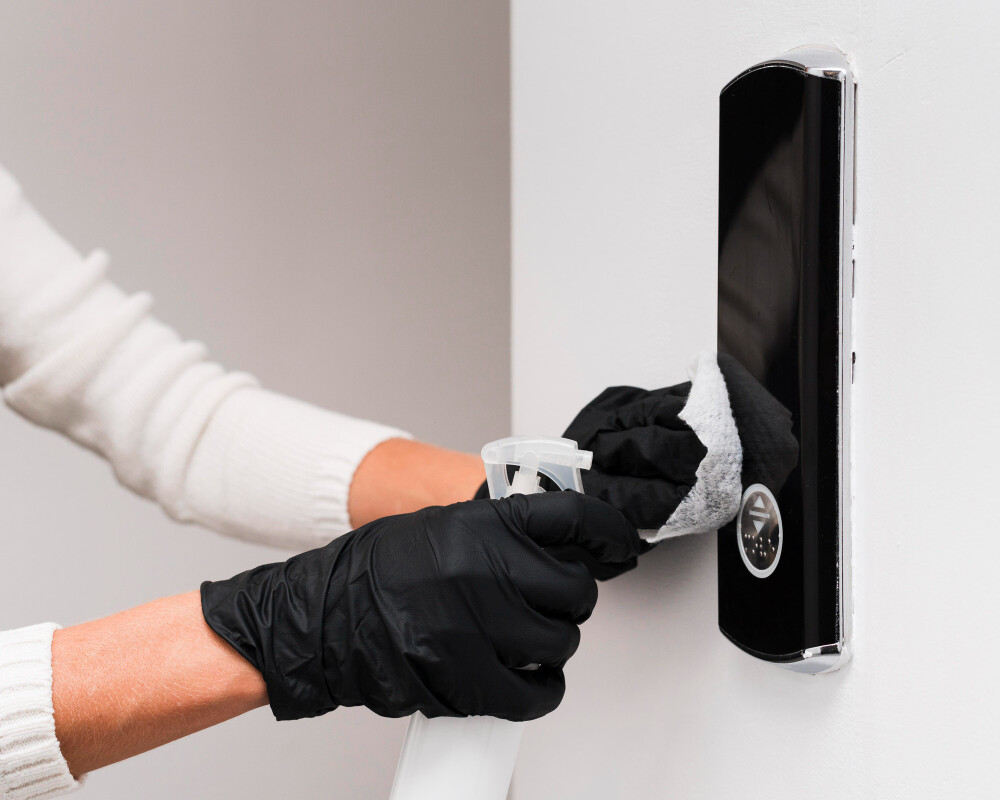Error de formato de correo electrónico
emailCannotEmpty
emailDoesExist
pwdLetterLimtTip
inconsistentPwd
pwdLetterLimtTip
inconsistentPwd

NOTICIAS

Exploring Bluetooth Smart Locks: Convenience and Security at Your Doorstep
In today's fast-paced world, technology continues to revolutionise the way we interact with everyday objects, and one prime example of this is the Bluetooth smart lock. These innovative devices have redefined traditional door locking mechanisms by adding convenience and security to our homes. In this blog post, we will delve into what Bluetooth smart locks are, how they differ from traditional locks, how they connect to smartphones and other devices, and whether they require an internet connection.
What is a Bluetooth Smart Lock?
A Bluetooth smart lock is a modern access control system designed to enhance the security and convenience of your home or office. It operates using Bluetooth technology, which allows it to communicate with nearby smartphones and other authorised devices. These locks are often integrated into your existing door hardware, replacing the need for traditional keys or PIN codes.
Bluetooth Smart Lock vs. Traditional Lock: What Sets Them Apart?
1. Convenience: One of the most significant advantages of Bluetooth smart locks is convenience. Traditional locks require physical keys, which can be easily misplaced or forgotten. With Bluetooth smart locks, you can unlock your door with a simple tap on your smartphone or by having an authorised device, like a smartwatch, in your pocket. No more fumbling for keys in the dark or under the rain.
2. Remote Access: Bluetooth smart locks often offer remote access capabilities. This means you can control your lock from anywhere with an internet connection, granting access to guests or service providers even when you're not at home. Traditional locks lack this flexibility.
3. Access Logs: Many Bluetooth smart locks maintain detailed access logs, providing a record of who entered and exited your property and when. This feature enhances security and helps you keep tabs on who has access to your space, which is not possible with traditional locks.
4. Temporary Access: Bluetooth smart locks allow you to grant temporary access to guests or delivery personnel. You can set specific timeframes for when the access is valid, enhancing security by limiting the duration of access.
How Does a Bluetooth Smart Lock Connect to Devices?
Bluetooth smart locks rely on Bluetooth Low Energy (BLE) technology to establish connections with authorised devices. Here's how the process typically works:
Pairing: Initially, you pair your smartphone or other authorized devices with the lock via a dedicated mobile app provided by the lock's manufacturer. This pairing process is secure and ensures that only authorised devices can control the lock.
Proximity-Based Unlocking: Once paired, the lock can detect authorised devices within a certain range. When you approach the door, the lock recognises your device and can automatically unlock the door or provide you with a one-tap unlocking option via the mobile app.
Manual Control: In addition to proximity-based unlocking, you can also control the lock manually through the mobile app, allowing you to lock or unlock the door remotely.
Does a Bluetooth Smart Lock Require an Internet Connection?
One of the standout features of Bluetooth smart locks is their ability to function without a continuous internet connection. Unlike some other smart home devices that rely on the cloud, Bluetooth smart locks communicate directly with authorised devices via Bluetooth, which means they can operate offline.
However, many Bluetooth smart locks offer internet connectivity as an optional feature. This feature allows for remote control and monitoring, such as unlocking the door for guests while you're away or receiving notifications of door activity. To enable internet connectivity, the lock may require a Wi-Fi bridge or hub, which acts as a bridge between the lock and your home's Wi-Fi network.
In conclusion, Bluetooth smart locks are a cutting-edge addition to modern home security and convenience. They offer seamless access control, remote management capabilities, access logs, and temporary access options. They can function both with and without an internet connection, making them versatile and suitable for various use cases. As technology continues to advance, Bluetooth smart locks are likely to play an increasingly significant role in enhancing the way we secure and access our homes and offices.
